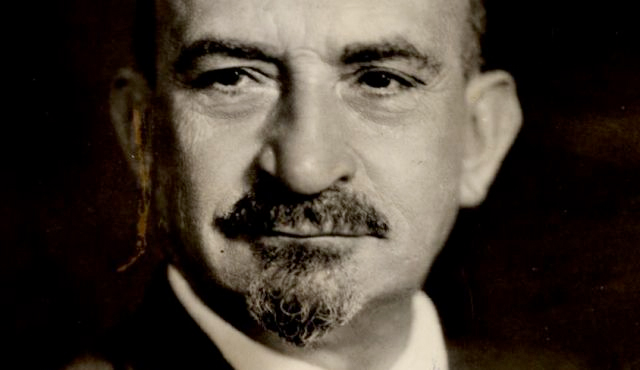Researchers at the University of California are developing a method of producing biological fuel, first proposed nearly a century ago by the eminent scientist who was also Israel's first president.

Chaim Weizmann. He foresaw the energy crisis and proposed an economical way of making fuel. Photo by Weizmann Institute of Science
Chaim Weizmann is primarily known as a leader of the Zionist movement and the first president of the State of Israel. However, before his success in statesmanship and politics, Weizmann became famous during World War II for inventing a new method of producing acetone, which was needed for manufacturing explosives.
In fact, this invention is considered an important milestone in helping win the support of Britain’s leaders for the establishment of a national Jewish homeland in Palestine. Less known is Weizmann’s attempt, at about the same time, to promote a scientific solution to the oil shortage. His answer, which is today known as biofuel, was based on the same bacterium that helped him produce acetone. However, his biological fuel idea never came to fruition.
Only recently, nearly 100 years after he first articulated the idea, has a group at the University of California at Berkeley completed Weizmann’s initial work. They are proposing an efficient method for producing high-quality fuel from plants using that bacterium known as Clostridium acetobutylicum — or the Weizmann organism. The BP oil corporation has already agreed to sponsor the project and is currently setting up a site in Australia to examine the economic and industrial feasibility of the idea.
Weizmann was a great believer in the ability of science to solve acute problems faced by the human race. In his memoir he wrote that the oil question, which has implications for the Zionist question and for the entire world, is a scientific question.
He proposed using his bacterium in order to break down plants rich in starches that would be cultivated for this purpose in the British-controlled parts of Africa. The plants would produce basic chemical substances from which it would be possible to make fuel compounds that would serve as a substitute for petroleum distillates.
A team of scientists at UC Berkeley took up this scientific proposal about three years ago. In the November 7 issue of the journal Nature, the scientists summarized their work, which is being conducted by two research teams — a biological research group and a chemical research group.
“The biological group takes the strain of bacteria and uses it to break down plant material into three basic molecules," Israeli team member Dr. Elad Gross told Haaretz.
"From these three molecules the chemical research group builds longer molecules that can serve as fuel.”
The advantage of the use of the bacterium is that it makes it possible to break down the plants into the necessary components at room temperature and relatively inexpensively. According to Gross, the method the team is proposing has a significant advantage over the currently accepted method of producing biofuel from dedicated crops – which has major ecological and economic disadvantages.
The California group is one of many scientific teams around the world who are working on various ways to produce biofuel. Despite these efforts, biofuel is still significantly more costly to produce than standard petroleum fuels.
About two weeks ago Israel’s National Academy of Sciences held a conference to mark the 60th anniversary of Chaim Weizmann’s death. It seems apt that the conference was devoted not to Weizmann's contribution as a statesman and Zionist leader, but rather to his scientific achievements, some of which are proving to be especially prescient.
